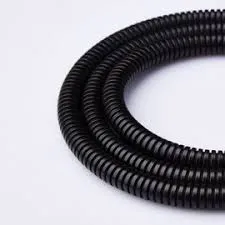Durable Plastic Cable Carrier Solutions for Efficient Cable Management in Various Applications
Understanding Plastic Cable Carriers Benefits and Applications
In the ever-evolving world of manufacturing and engineering, the need for efficient cable management solutions has become increasingly critical. One prominent solution is the plastic cable carrier, a system designed to organize, protect, and facilitate the movement of cables and hoses in various machinery and equipment. This article delves into the importance, benefits, and applications of plastic cable carriers, showcasing why they've become integral to modern industrial operations.
What are Plastic Cable Carriers?
Plastic cable carriers, often referred to as cable chains or energy chains, are flexible conduit systems that safeguard cables and hoses while allowing for smooth and unrestricted movement. These carriers consist of interconnected links that can be assembled in various shapes and sizes, accommodating different lengths of cables and hoses. Typically made from lightweight and durable plastics, these carriers withstand harsh environments while providing a reliable solution for managing electrical and hydraulic systems.
Benefits of Using Plastic Cable Carriers
1. Durability and Resistance One of the standout features of plastic cable carriers is their exceptional durability. Designed to endure extreme temperatures, UV exposure, and chemicals, these carriers are suitable for both indoor and outdoor applications. The high resistance to wear and tear ensures longevity, reducing the need for frequent replacements.
2. Flexibility and Design Options Different industries have unique requirements, and plastic cable carriers offer an extensive range of sizes, shapes, and configurations. This flexibility allows businesses to customize cable management solutions tailored to specific machinery and operational needs, enhancing efficiency and safety.
3. Weight Reduction Compared to traditional metal carriers, plastic options are significantly lighter. This reduction in weight leads to lower energy consumption and wear on machinery, ultimately translating into cost savings for manufacturers. Lightweight carriers also ease the installation process, enabling quicker assembly and integration into existing systems.
4. Noise Reduction Many manufacturing environments deal with noise pollution, which can affect both employee well-being and operational efficiency. Plastic cable carriers help mitigate this issue by reducing vibration and noise levels associated with moving cables, creating a quieter work atmosphere.
5. Ease of Maintenance Cable management systems can become complicated, requiring regular maintenance. Plastic cable carriers simplify this process, often allowing for easy access to cables and hoses. Their modular design enables quick adjustments and replacements, reducing downtime during maintenance activities.
plastic cable carrier

Applications in Various Industries
Plastic cable carriers find application in a myriad of industries, reflecting their versatility and adaptability.
- Manufacturing and Automation In automated production environments, where robotics are prevalent, plastic cable carriers ensure that power and data cables remain structured and protected, facilitating seamless operation.
- Automotive The automotive industry relies heavily on efficient cable management for assembly lines and robotic arms. Plastic carriers help maintain order in complex wiring systems and reduce the risk of wear and entanglement.
- CNC Machining Computer Numerical Control (CNC) machines require precise cable management to ensure correct positioning and movement. Plastic cable carriers keep cables secure, ensuring they do not interfere with the machine’s operations.
- Construction Equipment Heavy machinery often operates in rugged environments where cables are prone to damage. Plastic cable carriers offer protection against environmental elements, helping ensure long-lasting performance.
- Medical Equipment Precision and safety are paramount in the medical field. Plastic cable carriers support the intricate setups of medical devices while ensuring reliable operation without interruption.
Conclusion
As industries continue to innovate and adapt to modern demands, plastic cable carriers stand out as a crucial component for efficient cable management. Their durability, flexibility, and ease of maintenance make them an ideal choice for businesses across various sectors. By investing in quality plastic cable carriers, companies can streamline their operations, reduce potential hazards, and promote a safer, more organized work environment. In an age where technology and efficiency are paramount, cable carriers represent a simple yet effective solution for the challenges of managing cables and hoses in today's fast-paced industrial landscape.








